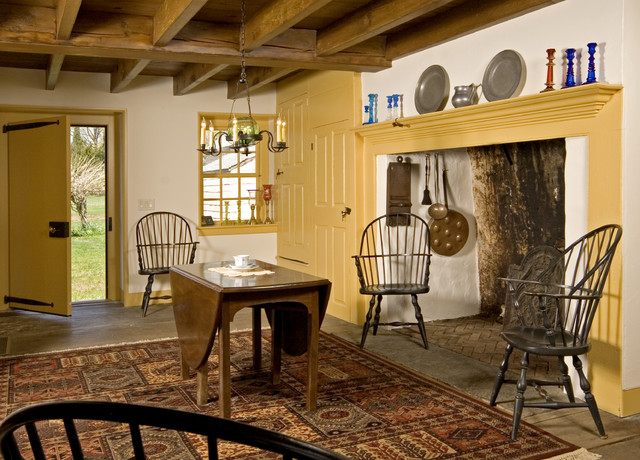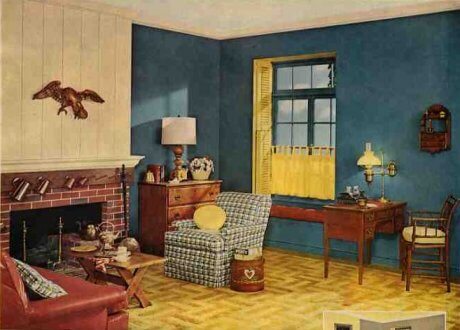Welcome to the world of Early American decor, where history meets heart. Join me as we dive deep into the rich tapestry of styles that shaped American homes in the past.
Understanding Early American Decor
Early American decor is a vibrant reflection of the nation’s origins, combining practicality with rustic charm. It draws inspiration from various influences, including Colonial, Federal, and Shaker styles. Let’s explore what makes this decor so special.
The Historical Context of Early American Decor
The Colonial Period
The Colonial era brought a mix of European styles and the need for functionality, resulting in a unique, sturdy aesthetic. One could find simple furnishings that were easy to make and repair.
The Federal Style
Emerging after the Revolutionary War, the Federal style introduced more refined elements and decorative motifs, reflecting the nation’s newfound identity.
The Shaker Influence
The Shakers, known for their minimalist lifestyle, emphasized utility and simplicity in their furniture, inspiring many modern design principles.
Core Elements of Early American Decor
Color Palette
Early American decor often features rich, earthy colors like deep reds, greens, and blues, creating a warm, inviting atmosphere.
Furniture Styles
| Style | Description | Key Features |
|---|---|---|
| Colonial | Simple and functional | Straight lines, natural wood finishes |
| Federal | Elegant and symmetrical | Decorative inlays, tapered legs |
| Shaker | Minimalist and practical | Sleek designs, focus on craftsmanship |
Textiles and Patterns
Textiles play a crucial role in Early American decor, with homes often featuring handwoven fabrics, patchwork quilts, and checked or striped patterns that add character and warmth.
Key Pieces to Incorporate in Early American Decor
Furniture
To create an authentic Early American space, focus on these essential furniture pieces:
- Farm tables
- Windsor chairs
- Chest of drawers
Accessories
Accessories can enhance the decor and provide a personal touch. Consider adding:
- Handcrafted pottery
- Antique books
- Framed documents or portraits
Tips for Achieving Early American Style
Start with a Neutral Base
Using neutral tones on your walls will allow your furniture and accessories to stand out. Choose shades like creamy white or soft beige.
Mix Antique with Modern
A blend of antique pieces with contemporary items can create a unique and engaging space. It’s a perfect way to showcase your personality while honoring tradition.
Pros and Cons of Early American Decor
Pros
- Timeless appeal
- Rich history and culture
- Natural and sustainable materials
Cons
- Can be perceived as outdated
- Finding authentic pieces can be challenging
- Requires careful arrangement to avoid clutter

Personal Experience: My Journey with Early American Decor
When I first stumbled upon Early American decor, I was captivated by its warmth and simplicity. My journey began with a visit to a local antique store, where I found a stunning Windsor chair. That chair became the focal point of my living room and was the catalyst for my love for this style.
As I delved deeper, I learned the value of each piece, each telling a story of craftsmanship and history. My home transformed into a cozy sanctuary that truly reflects who I am.
Frequently Asked Questions (FAQs)
What defines Early American decor?
Early American decor is defined by its rustic charm, practicality, and focus on natural materials and craftsmanship, often reflecting the various historical periods that influenced early American homes.
How can I incorporate Early American decor in a modern home?
You can incorporate Early American decor in a modern home by selecting key vintage furniture pieces, using a color palette inspired by nature, and mixing in contemporary accessories for balance.
